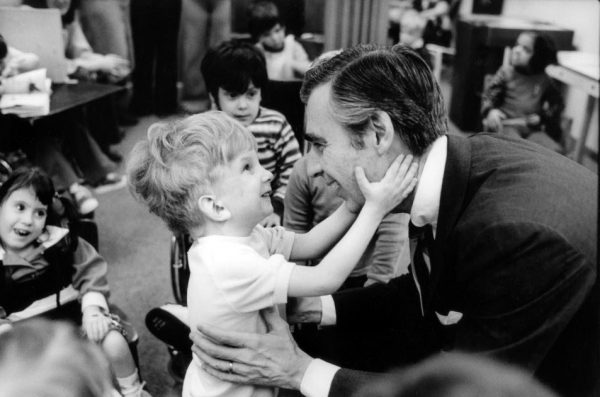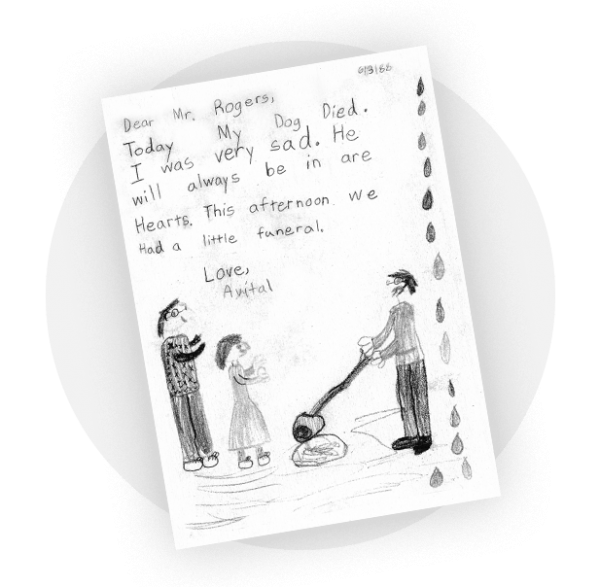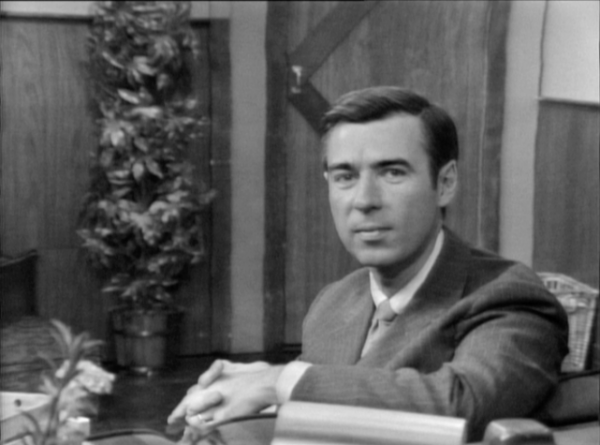Mister Rogers wasn’t afraid to talk about difficult topics. One reporter said: “Mister Rogers was softer than anyone else in children’s TV because so many of the messages he had to impart were harder. That your parents might someday decide not to live together anymore. That dogs and guppies and people all someday will die. That sometimes you will feel ashamed and other times you will be so mad you will want to bite someone.”
The world is not always a kind place. That’s something all children learn for themselves, whether we want them to or not, but it’s something they really need our help to understand.

Mister Rogers knew that children are very much aware of what’s going on around them, especially when it’s sad or scary. He knew, too, that children are easily confused about what they hear, and their fantasies can be much worse than what is actually happening. At the same time, he understood it’s natural for parents and caregivers to want to protect children and avoid talking with them about difficult things.
Children have lots of questions and there aren’t always easy answers – or any answers – to many of their questions. Fred offered simple, straightforward, honest, caring explanations that children could understand, modeling for adults how they might talk with children too.
There was a hopeful side in Mister Rogers’ messages about these difficult subjects. He helped children know – and perhaps more importantly adults too – that feelings don’t last forever. Sad feelings will pass, and there will be happy times again. “The very same people who are sad sometimes are the very same people who are glad sometimes.”
Today my dog died. I was very sad. He will always be in our hearts…


In 1968, two days after Robert Kennedy was assassinated, Fred Rogers produced a special program for adults. The country was consumed with the devastating news, glued to their televisions. At that time, it was easy to assume young children didn’t know what was going on. But Fred Rogers knew that wasn’t the case.
In a half-hour prime time PBS special, Fred Rogers addressed the concerns, fears, and feelings of young children, speaking directly to the adults in their lives. It was groundbreaking and revolutionary to use television in this way.
“I’ve been terribly concerned about the graphic display of violence which the mass media has been showing recently. And I plead for your protection and support of your young children. There is just so much that a very young child can take without its being overwhelming to him. ”
In the years since we are all consumed by the news on television, whether it’s a natural disaster, a war abroad, terrorist activities. Young children have a hard time understanding, when it’s on the television in their living room, what’s near or far, what’s happening now or what already happened, or if it is happening again and again. In these scary times of crisis, young children need to feel secure. They want to know, “Who will take care of me?” They need reassurance from the adults in their lives that they will do everything they can to keep the children safe.
There is another important message that Fred conveyed over the years that has brought solace to adults as well as children. It was something he talked about that his mother told him when he was a child and there would be scary things in the news, “Look for the helpers, you will always find people who are helping.” Instead of focusing on the bad, Fred again found a way to focus on the good, and in doing, so he encouraged us all to have hope for the future.